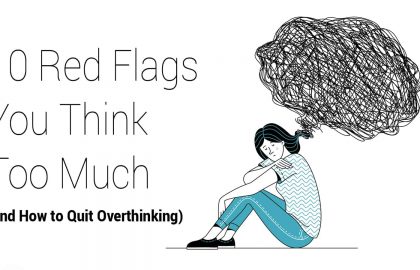Child abuse is one of the most gut-wrenching things a human being can experience. The psychological scars left from abuse can be severe and last a lifetime.
Child abuse or childhood maltreatment (CM) can be defined as “sexual and physical abuse, emotional maltreatment, and neglect.” Furthermore, CM can be inflicted by adults and peers; systematic or random; a one-time occurrence or repeated.
Andrea Brandt, Ph.D., a licensed marriage and family therapist writes in Psychology Today:
“Even if you can’t name the aftereffects (of abuse), you feel them. Whether it’s feeling like a permanent victim even when you’re years removed from what traumatized you, acting passive-aggressively when upset, retreating into passivity, or creating a false, always-happy version of yourself, there are many ways childhood emotional trauma continues to affect you even after you’ve grown up.”
Disturbingly, colleges across America – and, presumably, the world – are often flooded with students who have been abused. This makes sense, as college is often the young adult’s first “taste” of individual living.
Sadly, physical detachment does not provide much relief to deep-seeded trauma. There is perhaps no better example than the following study undertaken by two Israeli professors.
Childhood Maltreatment and Relationships
Golan Shahar and Dana Lassri are professors Ben-Gurion University in Negrev, Israel. They conducted two studies with hopes of determining what, if any, relationship exists between childhood trauma and adult relationships.
The professors hypothesized that the profound nature of childhood trauma does impact interpersonal relationships to some degree. Now, they needed to test their theories. To do so, Sharar and Lassri enlisted the help of college undergraduates.
Before we delve into the five signs, lets bullet point both studies to provide some context:
– Total number of participants: 190
– Average age: 24 (1st study), 23 (2nd study)
– Oldest participants: 33(1st), 39 (2nd)
– Data were gathered via clinically validated self-report questionnaires.
– Items on the questionnaires asked about the person’s abuse history, including emotional abuse, emotional neglect, physical abuse, physical neglect, and sexual abuse.
– Participants in the second study completed a follow-up questionnaire that inquired into the relative health of past and present intimate relationships.
The Five Signs of Childhood Trauma
After analyzing the results and accounting for errors, Professors Shahar and Lassri summarized their findings. Per their report (and other outcomes), here are the five signs of childhood trauma often revealed in relationships:
1. Self-criticism
Of all measured effects, reports of self-criticism were the most pronounced.
Shahar defines self-criticism as:
“an intense and persistent relationship with the self, characterized by (1) an uncompromising demand for high standards in performance, and (2) an expression of hostility and derogation toward the self when these high standards are – inevitably – not met.”
Sadly, victims of abuse will often disparage themselves in front of their partner. Should they lack emotional intelligence (common among the abused), it is likely that the individual will also direct their anger towards their partner.
2. Sexual problems
Predictably, children who have been sexually abused have difficulties with intimacy later in life. Physical and emotional abuse may also induce the same dysfunction – although often to a lesser degree.
Some of the sexual problems experienced include flashbacks to abusive experiences during sexual contact, inability to achieve orgasm, pain or numbing during intimacy, and sexual inhibition or promiscuity.
3. PTSD symptoms
PTSD is an acronym for Post-Traumatic Stress Disorder, a mental health condition that develops following a severely disturbing event. Feeling afraid and anxious are the two most common PTSD symptoms. It’s not unusual for someone with this anxiety disorder to experience a panic attack, which may surface with or without an external trigger.
To the observer, someone suffering from PTSD or PTSD-like symptoms display outward signs of discomfort. They may appear overly-reactive or jumpy for no particular reason.
Your partner may attempt to numb their feelings by drinking alcohol to excess or using drugs.
4. Low self-efficacy
In general terms, self-efficacy is the belief in one’s ability to accomplish a task.
Tragically, child abuse can forever damage a person’s belief in their abilities. From a young age, the child is either: (a) explicitly told that he or she is incapable, or (b) feels incompetent due to the mistreatment of others.
Unless the person engages in some self-care or seeks the advice of a mental health professional, there is a good chance that they will fall short of reaching their potential.
Your partner most likely voices harsh opinions of themselves and doesn’t complete tasks to their abilities.
5. Relationship problems
The foundation of Shahar and Lassri’s, along with many others’ research, are the cumulative effects that child maltreatment has on intimate relationships.
The Professors explain “Over this, this tendency (of self-critical thinking) might be consolidated, becoming part of a person’s personality; and ultimately derailing relationships in general and romantic relationships in particular.”
Treatment
For obvious reasons, psychological recovery from child abuse is often a long-term process.
That said, recovery is possible. For information, please visit the website of the National Association of Adult Survivors of Child Abuse (NAASC) at www.naasca.org.
(C)Power of Positivity, LLC. All rights reserved
References:
http://psycnet.apa.org/record/2016-15316-001
http://www.nicabm.com/could-childhood-trauma-affect-adult-relationships/
http://www.naasca.org/010111-Recovery.htm
The post 5 Behaviors People Who Had A Traumatic Childhood Display In Their Relationships appeared first on Power of Positivity: Positive Thinking & Attitude.





